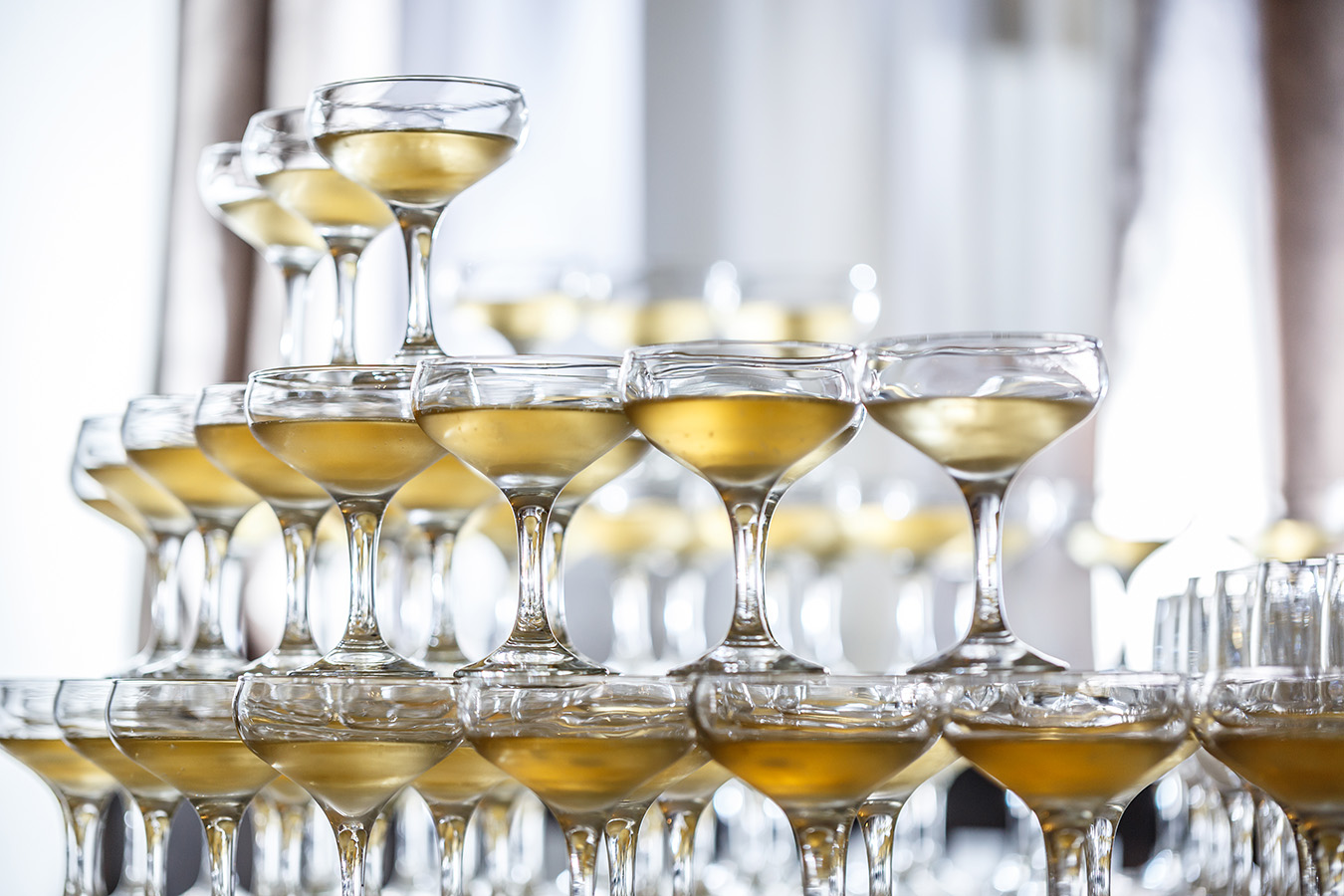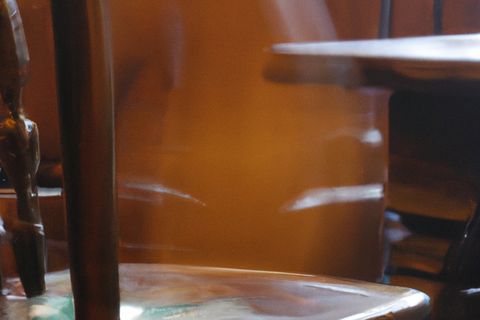Alcohol
Drinks
Opinion
Business
We need to talk about drinks promotions…

by John Risby
Published: August 07, 2016 Last updated: January 21, 2024

There’s something very wrong with the drinks industry and we need to talk about it — and tackle it — before it gets out of hand.
We all want to make money. That’s the ultimate aim of business.
Put simply — when you strip out all the niceties of sourcing great products, providing exceptional customer service, and all the other added value we do our best to provide — the bottom line is the bottom line.
What matters is how much money is left to pay the bills, the wages, and to re-invest in developing the business. And, ideally, if anything is left after all that, the profit.
All businesses face this, but most industries aren’t as heavily taxed as the alcohol industry.
For those who don’t know, let’s take spirits as an example (and if you do know, skip ahead to How do pubs make a profit?)
You can buy a 70cl bottle of Tesco’s own-labelled 37.5% vodka for £10.50.
Once you take the VAT off that (the VAT belongs to the government, not the retailer) you’re left with £8.75.
The duty on the alcohol is £7.26. So when you take that off the £8.75 you’re left with £1.49.
That’s the £1.49 that has to pay for the vodka itself, the bottling, transport, staffing and all the other elements of producing and selling that drink.
This is an extreme example of course, as we all know that the supermarkets — not just Tesco — use cheap alcohol to entice people into their stores to do the weekly shop where they make their profit.
This is intrinsically linked to the problem I want to discuss here but it’s harder to tackle so that’s a discussion for another day.
But it gives you an idea of the level of taxation on alcohol and the low profit margins involved in the industry, especially at the lower end of the market.
How do pubs make a profit?
Bars have to pay rent, business rates (which for a city centre bar can be huge), staff costs, the costs of building and maintaining the venue, music licences and lots of other bills and costs.
That can’t be done on £1.49 profit per 70cl bottle of vodka.
So when you go into a bar and you pay £6, £7, £8 (or more) for a spirit, you now know why it costs so much more proportionally than buying a bottle at a supermarket.
It’s understandable therefore that once a bar has a customer in, they want to keep them in. They don’t want someone coming in for one drink if they can keep them for two, three or more.
Straightaway this leads to one problem. It’s illegal to serve a person who is drunk. Plain and simple. You can lose your premises licence if you do.
But how many times have you been served when you were drunk? Or how many people have you seen served when they were clearly drunk?
Most bars will serve you until you become trouble. That’s their interpretation of drunk. And it’s clearly not the meaning nor the spirit of the law (no pun intended).
Again, this is understandable. If someone is drunk but friendly, why would you stop serving them — apart from to comply with the law?
And a friendly drunk can easily turn into a nasty drunk if you tell them they’re drunk and you refuse to serve them.
When you have the choice of selling another drink to a friendly drunk, or turning a friendly drunk into a nasty drunk, which would you choose?
And now imagine you’re not the owner of the bar, but a minimum wage bar worker trying to hold down a job while you pay for your degree.
I think it’s fair to say most of us would probably serve the drunk.
When supply and demand don’t match
Because of the cheap price of alcohol in supermarkets, more people are choosing to either drink at home with friends (or alone), or pre-load on cheap alcohol before going out and spending less when they go out.
We all know how many pubs have closed down in the suburbs in recent years and this is one of the main reasons (the smoking ban has had an impact too, but the large gulf between the price at supermarkets and pubs is likely the key factor).
But in the city centres, there’s no shortage of venues opening up. All competing with each other. All trying to do something a little different to entice customers and get them spending.
That’s great. It’s business.
But what happens when the supply (of venues) outstrips the demand (of customers)?
Long-term, the natural outcome is simple and logical. Bars will close and an equilibrium will be restored — for a time at least.
It’s the situation in the short-term that’s dangerous, and that’s where we are now.
Enter Drink promotions
So, we have too many venues and too few customers.
What’s the solution? What would you do as a bar owner to increase your share of a shrinking market?
Well, it seems many bars think drinks promotions are the answer.
Taking Manchester as the example, here are a few recent drinks promotions as reported by the local newspaper the Manchester Evening News (MEN).
All Star Lanes are running “all-you-can-drink” deals on weekend afternoons (midday to 4pm). With food starting at £7.50, you can pay £19 extra and then drink as much beer as you can — in a two hour time slot.
The Shack Bar and Grill in the Northern Quarter are offering “all-you-can-drink” Prosecco deals, again in a fixed two hour time slot of 4–6pm on Fridays, for £20.
Rosylee is offering half-price Prosecco whenever it rains (and yes, this is in Manchester).
And even Rosso, a high-end venue co-owned by Rio Ferdinand, is currently selling bottles of champagne at prices lower than supermarkets. As reported by the MEN “Rosso manager Sasha Svatek admits they are crazy prices, but says it’s all part of the venue’s desire to offer ‘affordable luxury’ to their customers.”
According to the MEN “The city centre is also seeing a surge in bottomless brunches, which are basically the all-you-can-eat-and-drink breakfast buffet of your dreams, offering unlimited food and drinks for a set price early doors.”
Another popular fad is beer pong. A drinking game where you force your opponents to drink beer by throwing a ping pong ball into a glass.
Does anyone else see a potential problem here?
What the law says…
All licensed venues have to comply with the Mandatory Licensing Conditions which were last updated in 2014. These are all designed to make sure everyone complies with the four licensing objectives which are:
- The prevention of crime and disorder
- Public safety
- The prevention of public nuisance
- The protection of children from harm
Scotland has a fifth objective “Protecting and improving public health” — those crazy Scots…
I learnt this when I obtained my personal alcohol licence. To do this you need to take a one day course and test. The test at the end is 40 multiple choice questions and you need to score 28 to get your licence.
Many of the questions are so basic if you can hold a pen you can correctly answer them. None of them is difficult.
Once you take out the very simple questions, you could probably reach 28 correct answers by randomly ticking boxes.
For the record, I scored 40 out of 40. And I’m not saying that to boast, but more to show how simple the test is. I read the guidance notes for about an hour the night before. It’s not rocket science.
The course and test is really designed to make sure people understand the basics of the four objectives.
What’s worrying is how many people seem to walk out of the course and quickly forget those basics.
And what actually happens…
There are two key sections I want to focus on.
The first is Section 1: Irresponsible Promotions
The guidance says
The 2014 Order states that the responsible person must ensure that staff on relevant premises do not carry out, arrange or participate in any irresponsible promotion, as listed below, where that promotion is carried on for the purpose of encouraging the sale of alcohol on the premises.
The first prohibition is “Drinking Games”.
This includes any game or activity that requires or encourages (or is designed to require or encourage) individuals to drink a quantity of alcohol within a time limit, or to drink as much as possible. This does not include “drinking up time”, shortly before the end of licensed hours.The application of this prohibition is not subject to a judgment of risk, and so any game or activity that falls within it would be in breach of the condition.Examples of this type of activity include drinking relay races and drinking challenges based on quantity.
So straight away that raises the question of how beer pong is allowed? It’s clearly designed to sell more drinks. In fact many bars who run the game set a minimum amount of alcohol you have to buy to play it.
The second prohibition is “Provision of alcohol free or for a fixed or discounted fee”.
This prohibits the provision of an unlimited or unspecified quantity of alcohol for free or for a fixed or discounted fee if there is a significant risk that such provision would undermine a licensing objective.
Clearly, when it comes to the all-you-can-drink promotions currently sweeping Manchester (and no doubt other cities), the question of legality has to lie with the clause “if there is a significant risk that such provision would undermine a licensing objective”.
Am I the only one who thinks that encouraging all-you-can-drink in a fixed two-hour time slot during the daytime poses that risk?
I’m sure many will enjoy a good time and go home safely but there will be those that spill out into the streets drunk while families, tourists and shoppers are enjoying an afternoon in the city.
These laws are there to protect the majority from the consequences of a drunken minority and to protect those who are a danger to themselves.
Sticking with the the Manchester Evening News, you don’t have to spend long browsing their stories to find the downside of over-indulgence. There’s normally one or more on the home page every day.
The Cenotaph was recently moved as part of the redevelopment of St Peter’s Square. This has made it more open to the public than it previously was, and nearer to a number of bars.
Since then there’s been a number of incidents where people have been caught damaging it and even urinating on it.
It’s time to act
This ‘all-you-can-drink’ trend needs to be nipped in the bud in Manchester, and other major cities in the UK.
The law is already there. It’s simply that no one is enforcing it.
I’m not blaming the individual bars mentioned here, or any particular bar. Once one bar does it and gets away with it, it starts a downward spiral that other bars feel forced to join.
The key immediate question — putting aside cheap supermarket alcohol which the government has repeatedly failed to tackle — is why no one is doing anything to enforce the laws and stop these irresponsible promotions?
Truth be told, most venues — at least the more reputable ones — would probably welcome this. They don’t want to be forced into this situation anymore than we want to be surrounded by the chaos it creates.
We have a choice to make. We can either sit back until market forces restore order to the situation or we can demand the law is enforced.
In the case of Manchester, I’ve written to the council leader and the Lead Member for the City Centre, to ask why this situation is being allowed to develop.
If you live in Manchester and feel similarly, please consider doing the same. You may just want to point them to this article if you want.
If you live in another city with a similar problem, ask your local licensing authority what, if anything, is being done to tackle this problem.
Going out for the night and enjoying a drink with friends — whether alcoholic or alcohol-free — is normal. And done properly it should be safe and fun. That’s not the situation at the moment, and it needs to change — and quickly.

About The Author
John Risby
Co-Founder of The Alcohol-Free Shop and AlcoholFree.com. John is a recovering alcoholic who stopped drinking in June 2004. Born and raised in Manchester, he now lives in Malaga with his wife and young daughter. He came to terms with being an alcoholic many years ago, but still finds the concept his daughter is Spanish very strange.


